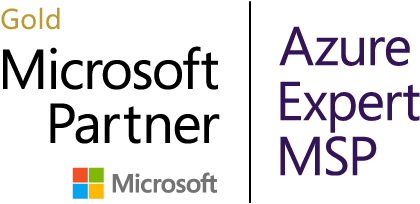 As 2019 fast approaches, digital transformation initiatives are top-of-mind for senior leadership. Data is king, and organizations that learn to leverage it will emerge ahead of the pack.
As 2019 fast approaches, digital transformation initiatives are top-of-mind for senior leadership. Data is king, and organizations that learn to leverage it will emerge ahead of the pack.
A major piece of the data puzzle is cloud technology. And according to a survey conducted by IDG[i], this is no secret to modern enterprises:
- As of 2018, 73% of enterprises have at least some portion of their computing infrastructure in the cloud, with 18% more planning on getting there within the next 12 months.
- The average cloud budget has grown from $1.62 million to $2.2 million over the last two years.
- 38% of survey respondents claimed that their IT department feels pressure to migrate 100% of their IT infrastructure to the cloud.
What’s the takeaway? Well, if you’re not already in the cloud, you’re behind. If you are, it’s worth reevaluating the major Cloud Service Providers (CSPs). Organizations that choose the right cloud service provider(s) now will cement their competitive advantage.
Azure vs AWS vs GCP: An Overview of the Three Major CSPs
There are 3 major CSPs: Microsoft Azure, Amazon Web Services, and Google Cloud Platform. Understanding the pros and cons of each is the first step to choosing a CSP.
- Microsoft Azure provides a host of cloud services through a network of data centers, all owned and operated by Microsoft. Azure is perfect for organizations already leveraging Microsoft’s robust toolset. And with advanced AI, machine learning, business analytics and Big Data capabilities, Azure offers a compelling reason for Microsoft newcomers to jump on board. Azure offers per-minute pricing, making it easy to keep costs contained.
- At 12 years old, Amazon Web Services (AWS) is the most mature CSP (Azure has been around for 7 years; Google for 6). Due to their maturity and support of developers, AWS has the most extensive 3rd party offerings. However, the amount of options (not all of which are useful) can make AWS challenging and overwhelming to use. Like Azure, AWS is easily accessed anywhere in the world and is priced per minute of usage.
- The CSP with the smallest portion of the market share (12%), Google Cloud Platform (GCP) is the most flexible of the three options. GCP has the best open-source support, offers great discounts and flexible contracts, and is designed for cloud-based businesses. The downside? GCP lacks the same level of features and services as Azure or AWS. Additionally, they have fewer datacenters worldwide, which can create performance issues and become an impediment due to governance and data residency issues.
Top Five Considerations When Choosing between Azure vs AWS vs GCP
The below is a short overview of what to look for when choosing between Azure vs AWS vs GCP in 2019. For a complete rundown of everything you need to know, download our whitepaper.
1. Cost
The top consideration for many organizations beginning their cloud journey; understanding operational costs in the cloud is critical when choosing your CSP.
2. Vendor Incentives and Migration Timing
All CSPs offer financial incentives to their partners. These incentives usually run once per year and for a specific period only. To take advantage of these incentives, it is important to optimize your migration schedule. For instance, Microsoft typically runs their cloud incentives mid-year to mid-year.
3. Vendor Lock-in
An important thing to consider when choosing a cloud vendor is the degree to which you must commit to them as you progress through your cloud journey. For instance, AWS Marketplace’s SaaS is exclusively configured for AWS. If you build your cloud ecosystem with applications purchased from the Marketplace, you may develop a dependency on AWS that makes it difficult to switch CSPs. This is just one example of the many ways all major CSPs attempt to lock in their clients.
4. Data Governance and Security
If you’re in a highly regulated sector, such as finance or healthcare, you will need to account for exactly which jurisdictions your data is stored, processed and managed in. It’s important to note that this means more than just understanding where your data resides – you need to know where your information is when in-transit, and how it is protected. Does your data cross state lines? If so, what does this mean for your regulatory obligations? Is data encrypted in transit and/or at rest? There is a significant difference between Azure vs AWS when it comes to both company’s data governance policies.
5. Technologies
Does your current tech and application infrastructure match with the CSP’s platform and preferred technology? The degree to which your two environments align will determine the resources you need to invest in re-coding and customizing your workloads to suit their particular cloud architecture.
For everything you need to know when it comes to choosing between Azure vs AWS vs GCP, read our whitepaper, “Choosing a Cloud Service Provider.”
If you’re looking to begin your migration to the cloud, or if you just have questions, contact the cloud experts at Hanu today.



